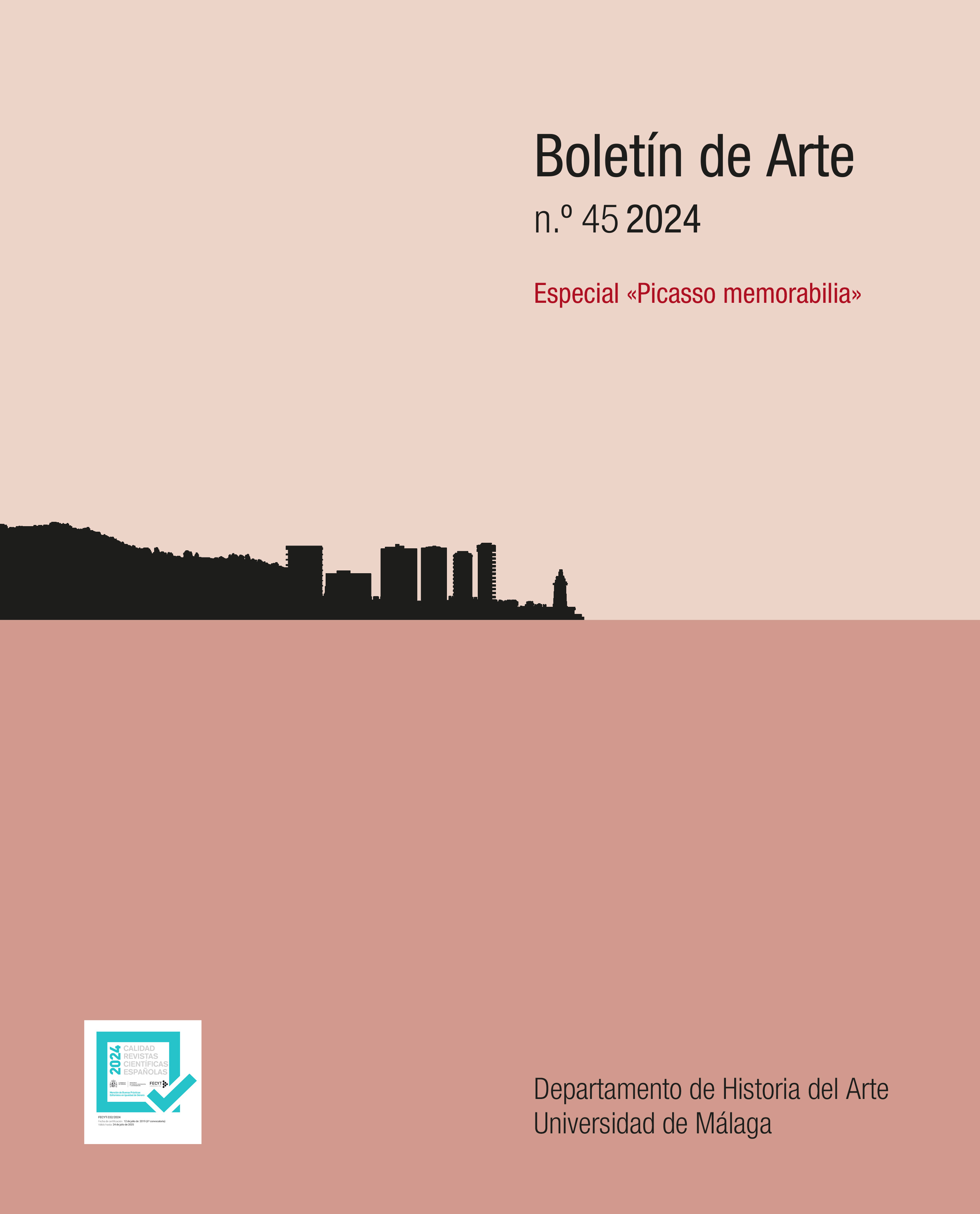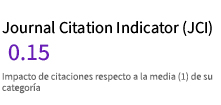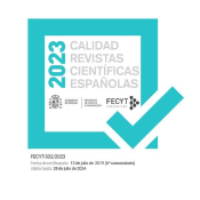Picasso and the Philosophers: an Overview
DOI:
https://doi.org/10.24310/ba.45.2024.20115Keywords:
Picasso, Philosophy, Politics, Representation, Perception, Kantianism, FeminismAbstract
Deleuze philosophized about Bacon, Danto about Warhol, but Picasso has never had his philosopher. However, this does not mean that many philosophers have not taken his work into account to some degree. The purpose of this article is to make a certain inventory, without claiming to be exhaustive, of this plexus of thinkers who have had Picasso as a reference, although in constellations of very different ideas and which are arranged in four groups. A first group that sees in Picasso’s work the avant-garde of the new world, the liquidation of the old bourgeois order, and the unleashed creativity of modernity. A second group of conservative or reactionary thinkers who already saw in Picasso’s work a clear sign of the decadence of the West. The third group brings together thinkers interested primarily in questions of perception, space and time. Lastly, the fourth group would be made up of those contemporary thinkers who approach the life and work of Picasso from perspective of genre, normally critical, and to whom the #MeeToo movement has given a visible boost.
Downloads
Metrics
References
ADORNO, Theodor Wiesengrund (1970), Gesammelte Schriften in Zwanzig Bände, Suhrkamp, Frankfurt. Traducción castellana: (2003), Obra Completa, 20 vols., Akal, Madrid, 2003 y ss.
ARNHEIM, Rudolf (1962), The Genesis of a Painting. Picasso’s Guernica, University of California Press, Berkeley.
ARNHEIM, Rudolf (1974), Art and Visual Perception. A Psychology of Creative Eye. The New Version, University of California Press, Berkeley y Los Angeles. La primera versión de esta obra es de 1954.
BATAILLE, Georges (1970), Oeuvres Complètes, 12 vols., Gallimard, París.
BEAUVOIR, Simone (1979), «Interview with Beauvoir», Signs, vol. 5, n.º 2, pp. 224-236.
BERDIAIEV, Nikolai (1914), «Pikasso». Publicado originalmente en la revista Sophiya, 1914, n.º 3, pp. 57-62. Versión en lengua inglesa en The Crisis of Art. A Collection of Articles, II: <https://www.berdyaev.com/berdiaev/berd_lib/1914_174.html>.
BERDIAIEV, Nikolai (1918), «Krizis Iskusstva». Publicado originalmente como primer artículo del volumito titulado «Krizis Iskusstva», Sbornik statei, Moscow, 1918, G. A. Leman and S. I. Sakharov, 47 p. Versión en lengua inglesa en The Crisis of Art. A Collection of Articles, II: <https://www.berdyaev.com/berdiaev/berd_lib/1918_14.html>.
BERDIAIEV, Nikolai (2016), El sentido de la creación, Carlos Lohlé, Buenos Aires, 1978. Traducción de la versión francesa.
BENJAMIN, Walter (1991), Gesammelte Schriften, 7 vols., Suhrkamp, Frankfurt. Traducción castellana: Obras, 7 vols., Abada, Madrid, 2010 y ss.
BERNADAC, Marie Laure y MICHAEL, Androula (eds.), Picasso, Propos sur l’art, Gallimard, París, 1998.
CAILLOIS, Roger (1975), «Picasso, le liquidateur», Le Monde des livres, 28 de noviembre.
DANTO, Arthur Coleman (1981), The Transfiguration of the Commonplace. A Philosophy of Art, Harvard U.P., Cambridge y Londres. Traducción castellana: (2002), La transfiguración del lugar común: una filosofía del arte, Paidós, Barcelona.
DANTO, Arthur Coleman (1994), Embodied Meanings. Critical Essays and Aesthetic Meditations, Farrar, Strauss & Giroux, Nueva York.
DANTO, Arthur Coleman (2003), La Madonna del future. Ensayos en un mundo del arte plural, Paidós, Barcelona.
DANTO, Arthur Coleman (2005), Unnatural Wonders. Essays from de Gap Between Art and Life, Farrar, Strauss & Giroux, Nueva York.
DE MÉREDIEU, Florence (2000), Kant et Picasso - Le bordel philosophique, Chambon, Nimes.
FOUCAULT, Michel (2011), «Les Ménines de Picasso», Cahier de L’Herne, n.º 95, Foucault, pp. 14-32.
GEHLEN, Arnold (2016), Zeit-Bilder und weitere kunstsoziologische Schriften, en Gesamtaugabe, vol. 9, Klosterman, Frankfurt. Versión castellana: Imágenes de época. Sociología y estética de la pintura moderna, Península, Barcelona, 1994.
GOODMAN, Nelson y ELGIN, Catherine (1988), Reconceptions in Philosophy and Other Arts and Sciences, Hackett, Cambridge.
JAQUES, Jèssica (2014), «Las Meninas de Picasso, 1957: cal·ligrafies de la indisciplina», en MARÍ, A. (ed.), La modernitat cauta. Resignació, restauració i resistència (1942- 1962), Angle, Barcelona, pp. 213-231.
JAQUES, Jèssica (2023), «Lo driádico: el matriarcado de Gósol y la iconografía de la mujer fuerte en la obra de Picasso», en AA.VV, En torno al arte. Estética, historia y crítica, Machado, Madrid, pp. 211-244.
KAHNWEILER, David-Henry (1970), Der Gegenstand der Aesthetik, Heinz Moos Verlag, Munich.
KRAUSS, Rosalind (1981), «In the Name of Picasso», October 16, pp. 5-22.
KRAUSS, Rosalind (1999), The Picasso Papers, The MIT Press, Boston.
LEIRIS, Michel (2011), Écrits sur l’artI, CRNS, París.
LUBAR, Robert S. (1997), «Unmasking Pablo’s Gertrude: Queer Desire and the Subject of Portraiture», The Art Bulletin, vol. 79, n.º 1, pp. 57-84.
MARCHENKOV, Vladimir L. (2021), «Nikolai Berdyaev’s Philosophy of Creativity as a Revolt Against the Modern Worldview», en BYKOVA, M.F. et al. (eds.), The Palgrave Handbook of Russian Thought, Palgrave Macmillan, Cham, Suiza.
ORTEGA Y GASSET, José (2005), La deshumanización del arte, en Obras Completas, vol. III, Taurus-Revista de Occidente, Madrid.
SARTRE, Jean-Paul (1948), Situations II, Gallimard, París.
SARTRE, Jean-Paul (1964), Situations IV, Gallimard, París.
STEINBERG, Leo (2022), Picasso. Selected Essays, ed. de Sheila Schwartz, U. of Chicago Press, Chicago y Londres.
WOLLHEIM, Richard (1987), Painting as an Art. The A.W. Mellon Lectures in the Fine Arts 1984, Princeton University Press, Princeton.
Downloads
Published
How to Cite
Issue
Section
License
Copyright (c) 2024 Gerard Vilar

This work is licensed under a Creative Commons Attribution-NonCommercial-ShareAlike 4.0 International License.
Todos los contenidos publicados en la revista Boletín de Arte están sujetos a la licencia Creative Commons Reconocimento-NoComercia-Compartirigual 4.0 cuyo texto completo puede consultar en <http://creativecommons.org/licenses/by-nc-sa/4.0>

Los/as autores/as cuyas contribuciones sean aceptadas para su publicación en esta revista conservarán el derecho no exclusivo de utilizar sus contribuciones con fines académicos, de investigación y educativos, incluyendo el auto-archivo o depósito en repositorios de acceso abierto de cualquier tipo.
La edición electrónica de esta revista esta editada por la Editorial de la Universidad de Málaga (UmaEditorial), siendo necesario citar la procedencia en cualquier reproducción parcial o total.











4.png)
